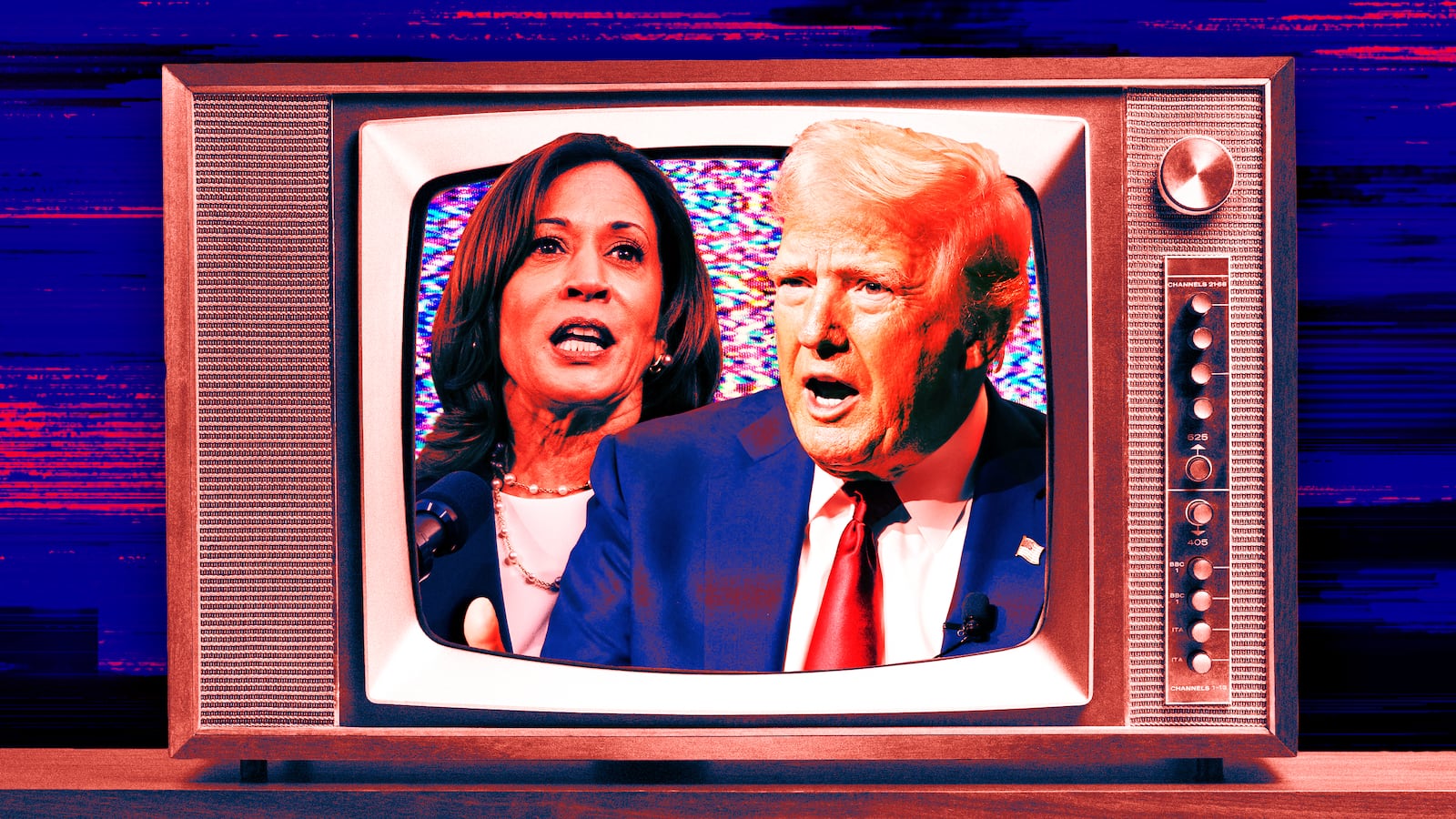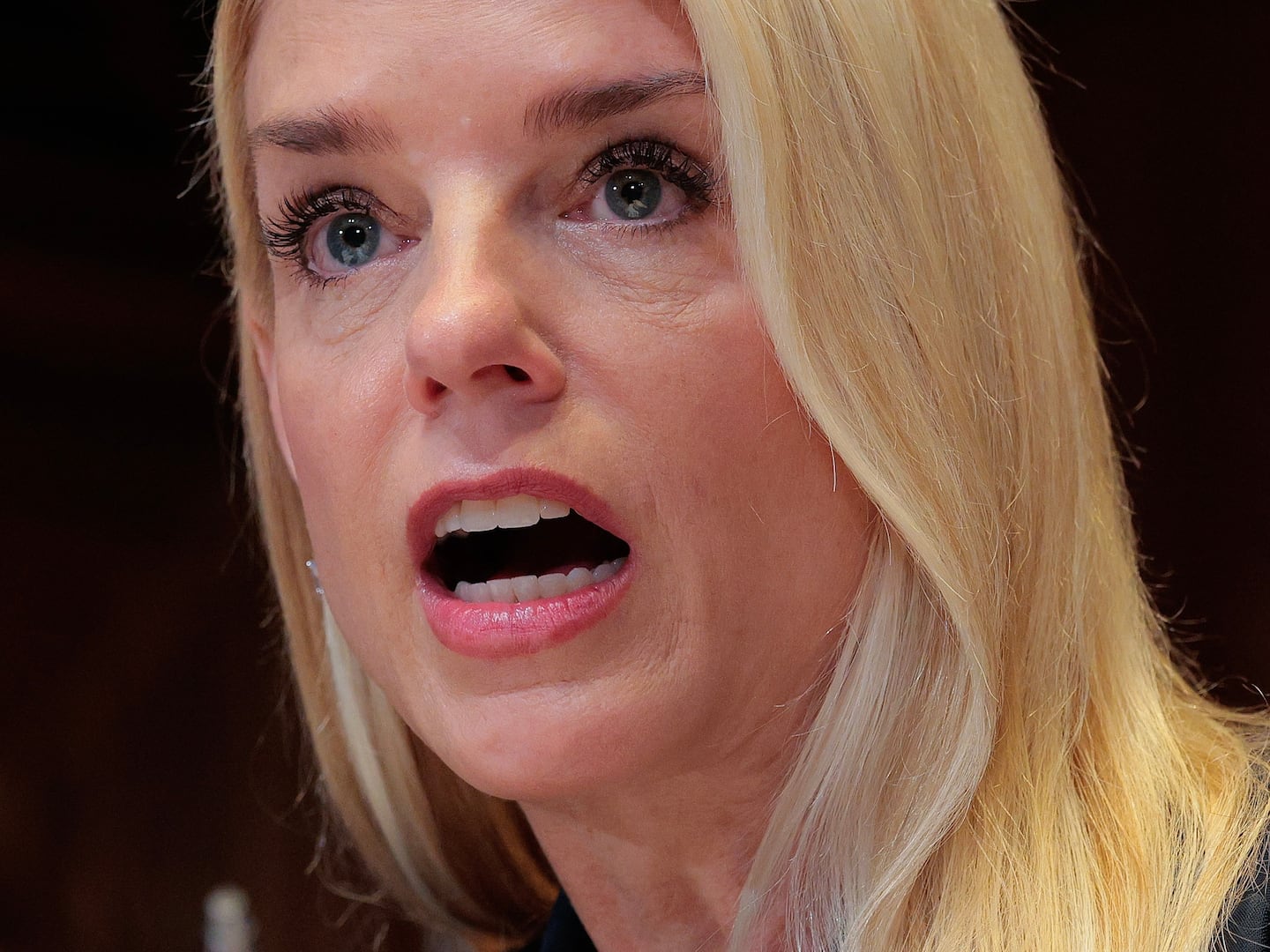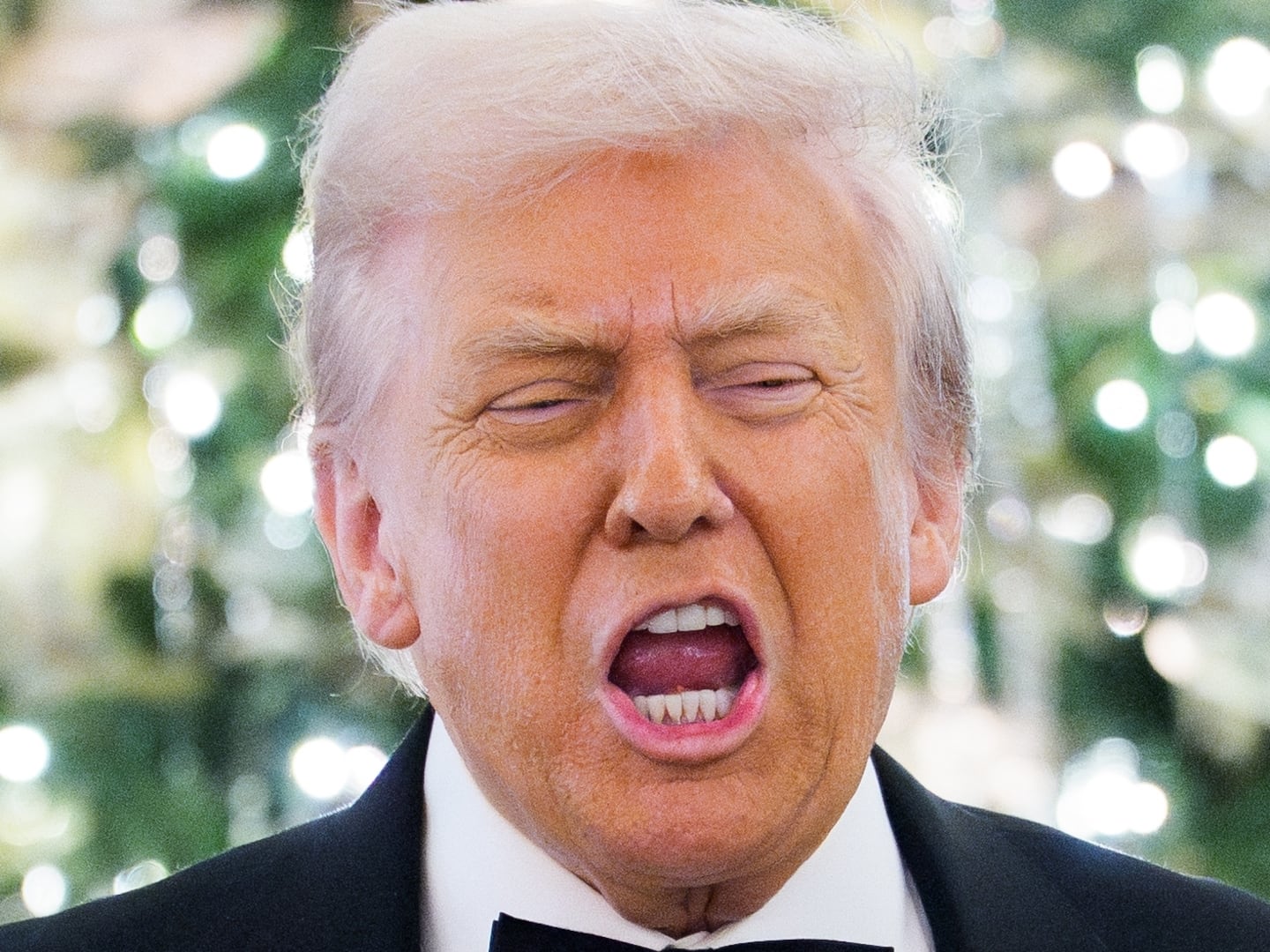Millions of Americans will tune into any one of the cable news and network channels to find out whether Donald Trump or Kamala Harris won the presidency. But can they—and will they—trust who they say won?
Misinformation and disinformation over this year’s coin-flip presidential race—often propagated by Trump—has spurred multiple television networks to be more transparent about how they call elections.
TV networks and news services are trying to reinforce the aura of truth that has typically surrounded their election calls—before it took a bludgeoning by Trump in 2020.
All for one, one for all
Most of the mainstream television networks—ABC, CNN, CBS, and NBC—are part of the National Election Pool, a consortium that receives local election results, exit polling data, and voter surveys from research firm Edison Research and on-the-ground stringers. Each network‘s own decision desks, comprised of analysts experienced in polling and political science, then independently reviews the data to project the winner of each state, with such projections varying depending on when a state‘s polls close, when a state counts its vote, and the differing opinions of each network’s analysts.
A notable exception to the NEP is Fox News, which broke away from the group in 2017 to rely on the Associated Press' VoteCast product that helps it examine the electorate. It was Fox News’ early controversial call that Trump would lose Arizona in 2020 that helped portend his eventual electoral failure—one that would set him on his quest to try and overturn the 2020 election. Trump has repeatedly attacked the network over the call, and Jared Kushner tried calling Fox News owner Rupert Murdoch to get them to reverse it. (Murdoch did not.)
Whatever the result is this week (and whenever it comes), the networks have made clear it doesn‘t matter who projects the election first—only who’s accurate.
“Calling the election is treacherous territory,” Rick Klein, ABC News' political director and Washington bureau chief, told the Los Angeles Times. “I think very few viewers know or care who projects a state first, but every viewer should care that they are projected right.”
NBC
NBC News viewers will be greeted by familiar faces in Lester Holt, Savannah Guthrie, and election guru Steve Kornacki, and the latter told The New York Times he plans to sleep at his desk if needed to be ready for the daylong slog to the results. NBC has also published multiple articles, including one co-written by director of elections John Lapinski, detailing how it calls elections, where it gets its voter data from, and how that’s used to determine the presidency.

“Projecting a winner means that the Decision Desk has determined that the trailing candidates cannot catch the leader and that the leading candidate will win the race,” wrote Lapinski, head of exit polling Stephanie Perry, and senior elections analytics manager Charles Riemann. “This determination is made through a comprehensive analysis, and the Decision Desk only projects a race when it is certain of the outcome.”
CBS
CBS News’ coverage will be spearheaded by Norah O’Donnell in her last hurrah before she pivots to a floating “special projects” role at the network. CBS plans to air its Data Desk‘s findings of each state in real time (whether as a ticker-tape or another format is unknown), executive director of elections Anthony Salvanto told KOLD, “whether a state is a toss-up, or it’s leaning toward one candidate, and ultimately, a projection.”
Relying on the data it receives from the NEP alongside its own precinct reporters, it’s hoping to get its viewers as accurate a glimpse of the swing-state state of play as possible.

“The thing is, transparency,” Salvanto said. “You’re going to see what we see at the Data Desk as we see it, so when I show you the breakdown of a state like Arizona, I’m going to show you county by county how the vote is breaking down and where it’s coming from.”
It will also have its 20-person CBS News Confirmed team fact-checking reports regarding alleged election malfeasance, according to The New York Times.
ABC
David Muir will lead the network’s coverage, with presidential debate partner Linsey Davis, Martha Raddatz, and Jonathan Karl joining him, among others. The Disney-owned news operation will also rely on its NEP data, and it has broadcast a series, “Protecting Your Vote,” that profiled election workers dedicated to maintaining the election’s safety. It will also have a “Ballot Watch” team that will monitor election integrity, according to the Los Angeles Times.
Having the anchors front and center could potentially roil the former president, who has attacked Muir as a “lightweight” and Davis as “terrible” since the debate.
CNN
CNN’s coverage will be led by Anderson Cooper and Jake Tapper. John King will also again man his famous “Magic Wall,” which will get a bit of a facelift, political director David Chalian told Vanity Fair.

CNN is also sending its own reporters and producers to polling precincts to be in touch with election officials, according to the network. But CNN has also deployed anchors like Jake Tapper to emphasize in the press how the election may not end on Tuesday even if the polls are closed—and if Trump tries to declare a preemptive victory. “Nobody has any idea how this is going to end,” he told Vanity Fair.
MSNBC
NBC‘s cable sister will host its “Avengers”-style roundtable spearheaded by Rachel Maddow, Nicolle Wallace, Chris Hayes, Stephanie Ruhle, and Lawrence O‘Donnell, among others. While the network does not independently call elections—that‘s NBC News’ decision desk—they‘ll still have Kornacki hopping over to MSNBC’s broadcast to break down election results. Kornacki, an NBC and MSNBC political correspondent, will also appear in yet another “Kornacki Cam” on Peacock that offers rolling footage of him as he breaks down each state‘s results (which should hopefully satiate all Kornacki fans’ needs).

Fox News
Fox News‘ coverage will slot Bret Baier and Martha MacCallum back in the anchor seats to lead the night’s events. Decision Desk chief Arnon Mishkin told Politico last month his team‘s mandate was to “focus on the numbers, and focus on who’s going to win, and let us know,“ even if its results irritate its traditionally GOP base—as his early and correct Arizona call in 2020 did to Trump.
As outlined above, Trump repeatedly attacked the network over the call, and Jared Kushner tried calling Fox News owner Rupert Murdoch to get them to reverse it. (Murdoch did not.)
”I don‘t feel any sort of pressure like, ’Call it our way. Make our audience happy,‘” Mishkin said of the 2024 election.

What will change, he later told Axios, was how the results get delivered. Mishkin said Fox News anchors weren’t as prepared to discuss the results that emerged from his desk in 2020, necessitating a change this time around.
“I think that there’s going to be a much greater focus on making sure that when we make a call, that call is made by the right anchor,” Mishkin said. “We’ve adjusted some of our communication systems to make sure that happens.”
NewsNation
Other networks will rely on different methods. NewsNation, a cable network home to ex-CNN and Fox News stars like Chris Cuomo and Leland Vittert that caters to centrist viewers, will partner with Decision Desk HQ to help declare election results. Chris Stirewalt, the Fox News political director who was pushed out after the Arizona call, will help make sense of the numbers to its viewers.
Stirewalt told)" href="https://urldefense.com/v3/__https://www.forbes.com/sites/markjoyella/2024/11/04/newsnations-chris-stirewalt-on-networks-plans-for-election-night-were-going-to-do-it-big/__;!!LsXw!Vxio5pxDCxUZhWzI-ER68gArBaFNBdnrE8pwvEXKOyO--YgDSYKaSvBO3rZs-zAvH5gexuLfh_R9g1FsnOiNo4CqVMiNqwDmHA$" target="_blank" rel="noreferrer" title="https://urldefense.com/v3/__https://www.forbes.com/sites/markjoyella/2024/11/04/newsnations-chris-stirewalt-on-networks-plans-for-election-night-were-going-to-do-it-big/__;!!LsXw!Vxio5pxDCxUZhWzI-ER68gArBaFNBdnrE8pwvEXKOyO--YgDSYKaSvBO3rZs-zAvH5gexuLfh_R9g1FsnOiNo4CqVMiNqwDmHA$">told Forbes transparency was the network’s top priority for election night, with plans to show those working to make the election calls.
“There they are. You can see them. Here they are on camera. This is who they are. This is their track record,” Stirewalt said. “You can and you can watch what they’re doing. And I think that is a more transparent and more frank way to do this. But the implication, of course, is that I don’t get to be part of the fun. And I find that annoying.”
Amazon
Jeff Bezos’ shopping-turned-streaming venture will also make its news debut on Thursday with an election-night special anchored by Brian Williams. The program, titled Election Night Live with Brian Williams, will feature commentary and reporting from various panelists like ex-Fox News and CNBC star Shepard Smith, Puck reporter Tara Palmeri, former White House correspondent Jessica Yellin, and Democratic political analyst James Carville, among others.

Williams told Deadline he will rely on Reuters for data, which itself relies on the National Election Pool data provided by Edison Research. But he wouldn’t go any further. “Our methods will be revealed when folks tune in,” he told Deadline.
“We are going to try to make this quite different while of course bearing down on the fundamentals,” Williams added. “We have no idea where the story will take us. We will do our due diligence and we will stick the fundamentals, and I think deliver some voices that cover all bases.”
The Associated Press
The Associated Press has called elections in the U.S. since the 1800s, relying on a team of vote reporters, or stringers, at local county precincts to report data back directly from election officials alongside its in-house VoteCast product. AP executive editor Julie Pace told CNN it planned to deploy 4,000 stringers this year to help report the scene on the ground at locations, all in an effort to combat election misinformation.
“You‘re going to see us do a lot more to pull back the curtain on now leading into the election, on what we’re looking at, as we are going to be looking at the vote and calling races and then coming out of those race calls, how we did it,” Pace said.’
Not that Trump will be so easily swayed by any explanation.
The former president and election-denier-in-chief has laid the groundwork both for casting doubt in the election, and in the networks that help call it.
Trump boosted false claims in September that ABC News colluded with Harris’ campaign to boost her performance during their only presidential debate, and he sued CBS last week for $10 billion in damages over its 60 Minutes interview with the vice president. He has also repeatedly suggested each NEP network’s broadcast license be revoked over coverage he’s disagreed with. (The Federal Communications Commission chairwoman last month denounced his requests as attacks on the First Amendment.)
Trump has even flip-flopped on Fox News in the last month, making multiple appearances on the network while simultaneously attacking it for not broadcasting his false diatribes on the 2020 election. “If you even mention the fact that there’s cheating in an election, they turn you off,” Trump told a crowd in Pennsylvania on Sunday. “I mean, this is supposed to be one of our brave, very brave networks. I won‘t mention which, but you could imagine.”







